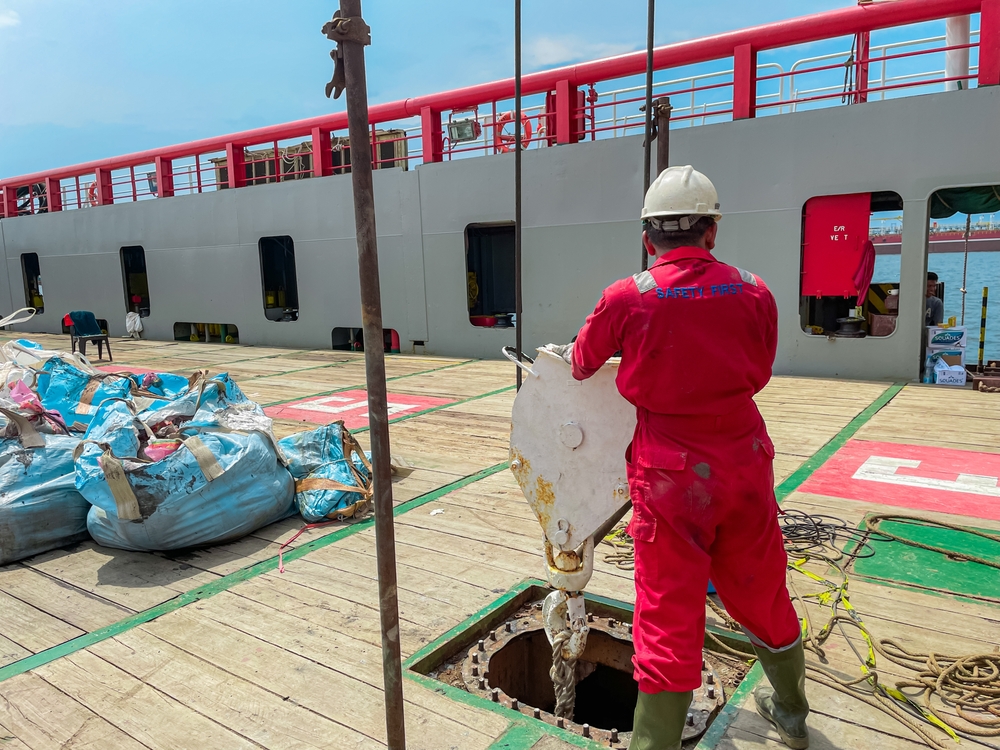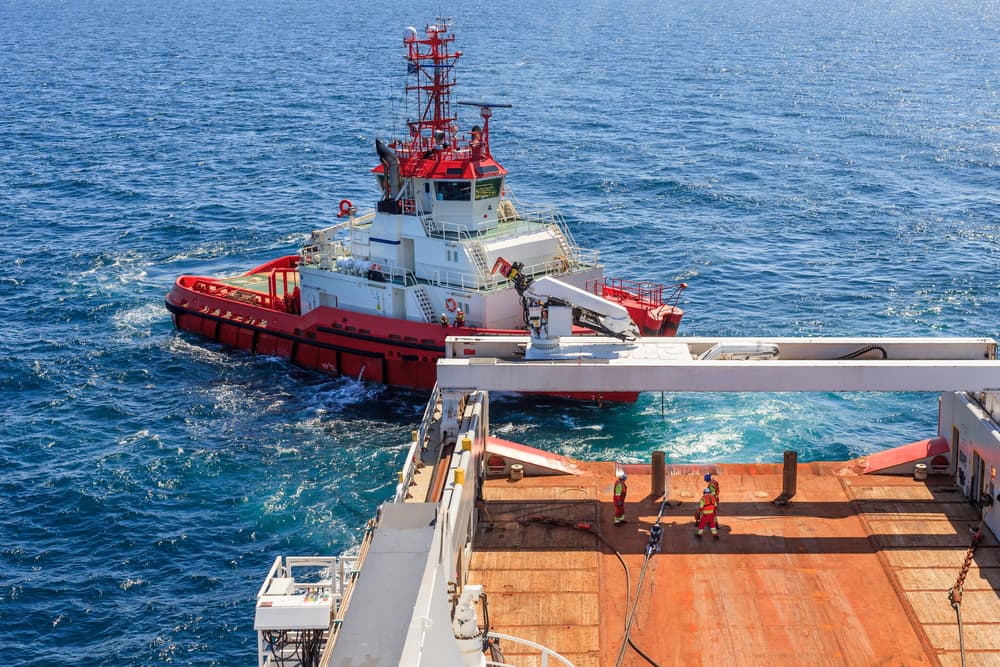You can sustain serious or even permanent injuries at sea, but if you’re a seaman, you may receive maintenance and cure benefits. They can pay for the medical treatment and provide the financial support you need to recover.
A maintenance and cure Law lawyer can secure those benefits, explain how the process works, and overcome the challenges you face.
What Are Maintenance and Cure Benefits?
Before diving into how to prove your case, let’s define maintenance and cure benefits.
In maritime law, maintenance refers to the living expenses you deserve while recovering from an injury or illness sustained during your service. It pays for basic needs like food and housing.
Cure refers to the medical expenses that cover your treatment until you reach maximum medical improvement. Together, they provide a safety net, supporting you while you focus on your recovery.
The Burden of Proof Falls on You
To obtain maintenance and cure, you must prove your entitlement. While that might sound simple, it’s not always a straightforward task. An injured seaman must provide evidence that your injury or illness occurred during your service on the vessel.
The burden of proof affects every step of your case. You need to show that you acted in the ship’s service and that your willful misconduct didn’t cause your injury or illness.
If you can’t provide sufficient proof, you risk losing out on the benefits that you earned.
A maritime accident lawyer can help gather and present this evidence, but you must still understand what goes into building your case.
Proving Your Injury Happened During Your Service

One of the biggest challenges you’ll face is proving the connection between your injury and your service on the vessel. It’s not enough to say you suffered an injury.
You must demonstrate that it happened while carrying out your duties as a seaman. This can include anything from performing maintenance tasks on deck to navigating rough waters.
In some cases, the incident causing your injury might be clear-cut, like a fall from a slippery ladder or an accident with equipment on board. But what happens if your injury or illness develops over time?
Conditions like back pain or carpal tunnel syndrome don’t always have a single obvious cause. If you’re dealing with an injury that has worsened over time, it becomes more difficult to link it directly to your work.
Medical Evidence Is Key
Medical records play a huge role in proving your claim. You’ll need to provide detailed documentation from doctors, including records of your diagnosis, treatments, and how the injury affects your ability to work.
Any inconsistencies in your medical reports can be used against you, so having accurate and comprehensive records from the start is important. Sometimes, you might need to see multiple medical specialists to provide enough evidence to support your claim.
If the shipowner or their insurance company disputes your injury, they might require you to undergo independent medical examinations. The exam doctor may work for the other side, seeking ways to minimize your claim. A lawyer can prepare you for this possibility and ensure you provide documentation of a consistent medical history and ongoing treatment.
The Fight Over Maximum Medical Improvement
Maximum medical improvement (MMI) is critical in proving cure benefits. Once you’ve reached MMI, your entitlement to cure benefits stops. But reaching MMI isn’t always black and white.
Sometimes, the shipowner’s insurer may try to argue that you’ve reached MMI even if you still experience pain or limitations from your injury. Once you reach MMI, the insurance company will cut off your cure benefits, even if you still need ongoing care.
Disputes over MMI often lead to legal battles. You might need further treatment, but the insurer may say otherwise. A maritime accident attorney can challenge premature MMI declarations and ensure you receive all the medical care you need to recover.
Living Expenses and Maintenance Payments
While recovering, you may qualify for maintenance payments to cover basic living expenses. But what exactly counts as a reasonable living expense?
This is another area where disputes often arise. The shipowner or their insurer might argue that your requested maintenance payments are too high, leading to delays in getting the support you need.
You may also face financial strain because the insurance company may base maintenance payments on the modest cost of living aboard the vessel rather than the real-world expenses you incur on land. Rent, utilities, and food typically cost far more than what you’d pay on a ship.
While maintenance payments aren’t meant to provide luxury, they should reasonably cover your basic needs. Proving that your expenses are reasonable can involve providing rent receipts, utility bills, and grocery receipts.
How Past Maritime Cases Can Affect Your Case

Maritime law doesn’t exist in a vacuum. It’s shaped by precedents – past rulings that courts use to guide decisions on new cases. This aspect of maritime law can significantly influence your claim for maintenance and cure. Shipowners and insurers often use past rulings to fight against claims like yours, especially if those rulings favored the defense.
For instance, if there have been cases where courts denied maintenance and cure to seamen with injuries similar to yours, the defense may point to those rulings as a reason you shouldn’t receive benefits. They’ll argue that the facts of your case align with those past decisions, trying to sway the court in their favor.
This strategy can make your case more difficult to win, as it introduces additional hurdles to proving your entitlement to maintenance and cure.
Precedents Can Also Help
However, past cases can also work in your favor. If courts sided with injured seamen in situations like yours, those precedents can strengthen your claim.
A maritime accident lawyer will know which precedents apply to your case and use them to bolster your arguments in court.
But you shouldn’t assume that past rulings will automatically guarantee success or failure. Each case is unique, and the specific facts of your situation will play an important role in the court’s decision.
The challenge lies in navigating how the court may interpret those facts in light of existing precedents. Your attorney will highlight favorable rulings and differentiate your case from unfavorable ones, presenting your claim in the best possible light.
How Shipowners and Insurers Try to Minimize Payments
When it comes to maintenance and cure claims, shipowners and their insurers are often more concerned with their bottom line than with your well-being. They aim to minimize the amount they must pay and use several tactics to achieve that.
One common strategy is to dispute the severity of your injury. The shipowner’s legal team may argue that your injury isn’t as serious as you claim or that you’ve already recovered enough to return to work.
They may also challenge your medical records, suggesting that your treatment was unnecessary or that you’ve reached maximum medical improvement when, in fact, you still need further care. By casting doubt on your injury, they reduce or eliminate your maintenance and cure benefits.
Another tactic is to claim you don’t qualify for maintenance and cure. The shipowner or insurer might argue that your service on the vessel didn’t cause your injury or that you acted outside the scope of your duties when you got hurt. If they succeed in making these arguments, they can avoid paying you anything.
Inadequate Settlement Offers
A common strategy shipowners and insurers use is offering a lowball settlement. They might present you with an offer that seems reasonable at first glance, especially if you’re facing financial hardship.
But in reality, the amount they offer may not cover your medical expenses or living costs in the long run.
Worse yet, accepting a settlement often means giving up your right to seek further compensation. Once you’ve signed a settlement agreement, you generally can’t go back and ask for more money if your injury is more serious than you initially thought.
If you’re struggling financially, it can be tempting to take the first offer that comes your way. After all, a quick payout can provide immediate relief. However, accepting a low settlement can leave you with long-term financial problems, especially if your injury requires ongoing treatment.
Carefully weigh any settlement offer with a lawyer and consider whether it meets your needs. You’ll need to consider your current expenses, future medical costs, lost income, and any additional treatments you might require.
Before accepting any settlement, ensure you understand the full extent of your injury and its potential impact on your life. You might feel pressure to settle quickly, but evaluating the offer can make all the difference in securing compensation.
A maritime accident attorney can assess whether the settlement is fair and advise you whether to accept it or continue fighting for a better outcome.
The Importance of Persistence
Proving your entitlement to maintenance and cure benefits isn’t always an easy or quick process. You may face delays, denials, and low settlement offers along the way.
But stay persistent. The shipowner and insurer might hope you’ll give up if the process drags on long enough. However, remaining patient and determined can increase your chances of securing the full benefits you deserve.
The process may sometimes feel overwhelming, but you don’t have to go through it alone. With legal assistance and a clear understanding of what you deserve, you can fight back against attempts to minimize your claim. It’s a challenging road, but persistence pays off in the long run.
By pushing forward and staying focused on your goal, you can overcome obstacles and get the financial and medical support you need to recover.
Fighting for Fair Compensation in Court
If you can’t agree with the shipowner or their insurer, your case may need to go to court to get the benefits you deserve. Both sides will present evidence during the trial, and witnesses may be called to testify.
You don’t have to go up against a team of lawyers hired by the shipowner alone. A maritime accident lawyer can represent you in court, ensuring that your side of the story is heard and giving you a fair chance to prove your claim.
The Long-Term Impact of Securing Benefits

Securing maintenance and cure benefits isn’t just about covering your immediate expenses – it can affect your future.
If the accident left you with a permanent disability, your maintenance and cure payments may not cover your long-term needs. You may need to explore additional avenues for compensation, such as filing a personal injury lawsuit under the Jones Act.
The Jones Act allows injured seamen to seek damages for pain and suffering, lost income, and diminished earning capacity. These claims can provide far more substantial compensation than maintenance and cure alone.
However, proving a Jones Act claim requires showing that the shipowner or a co-worker’s negligence contributed to your injury.
Learn More About How a Skilled Maritime Accident Lawyer Can Help
Proving your entitlement to maintenance and cure benefits is challenging but can significantly influence your recovery and financial future. You’ll need a lawyer to provide strong evidence that ties your injury or illness to your service on the vessel, and you’ll need to prepare for disputes over medical treatment, living expenses, and maximum medical improvement.
A maritime accident attorney can overcome these challenges and ensure you get the benefits you earned. Securing maintenance and cure benefits can provide the financial and medical support you need to move forward with your life.
Contact an experienced maritime accident lawyer so they can fight for the compensation you deserve and protect your future.

